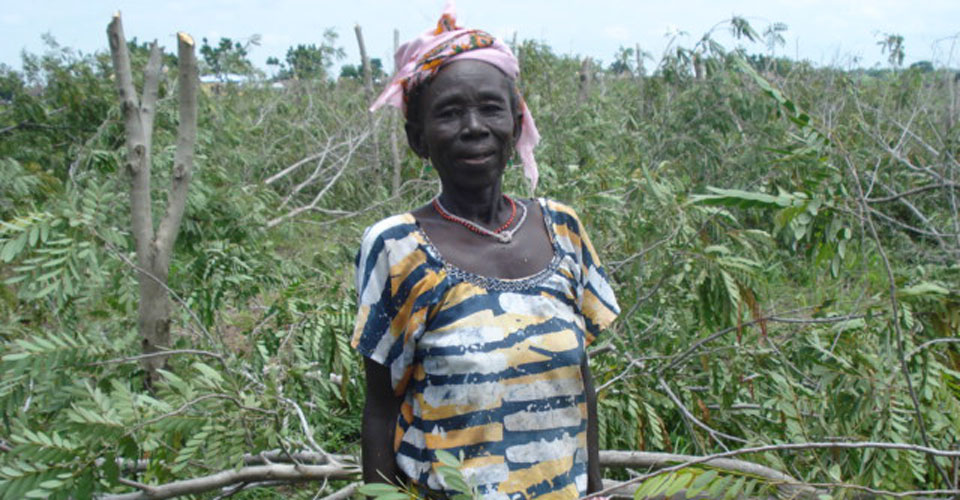Ghana:
Accountability from the bottom-up: Ghana’s chiefs embrace transparency

“The kingdom is bigger than the most powerful Chief” said the President of the Brong Ahafo Regional House of Chiefs, Osahene Kwaku Aterkyi II, at a meeting to draft and adopt a new charter on natural resources. “As stakeholders in natural resources management,” he added, “it is proper that the chiefs are enlightened on the matter to enable them to contribute their quota in the management of forest and other natural resources”.
Ghana’s chiefs don’t always have a good reputation and some have been accused of secret land sales and stealing royalties. Tradition demands that they are respected, but the public is sceptical that they can be trusted as community representatives in natural resource deals that are critical to everyone’s futures.
When the Centre for Indigenous Knowledge and Organisational Development (CIKOD) first organised meetings with communities on forest and wildlife policy, its field staff documented a pattern of abuse. Farms were regularly destroyed, without compensation, by logging companies to reach timber trees. At the same time, the supposed benefits from revenue-sharing or social agreements consistently failed to materialise.
Today there are real signs of positive change. And the journey here offers valuable lessons on bringing communities and traditional leaders into the conversation about what happens to their forests.
CIKOD’s strategy for change was to start work at the local level, closest to the citizens, and build accountability from the bottom-up. They began with Brong Ahafo Region, where the President of the House of Chiefs was known to be more receptive to the principles of transparency and accountability. Following the community meetings, CIKOD approached the President, Osahene Aterkyi, to raise the idea of a charter to guide the management of natural resources with his sub-chiefs.
It took time to convince the chiefs, who feared the ‘burden of accountability’ and felt that money made from resources should be used primarily for the maintenance of their stools (chiefdoms). Development was the job of the District Assembly, they said. But the CIKOD team was able to appeal to them on their own terms, pointing out that the charter would allow them to engage the District Assembly on how it uses its share of royalties. “Lead by example and see the benefits for all,” said Willie Laate, CIKOD’s project leader.
The draft ‘Charter on Management of our Natural and Socio Cultural Resources’ was based on a combination of traditional and modern natural resource management practices and systems. It was first trialled in Osahene Aterkyi’s own community, and then brought back to a committee of the Regional House of Chiefs for review.
Despite some blocking efforts, a majority of the 49 chiefs in the region understood the use they could make of such a charter and were supportive. It was tabled for approval in September 2012, and became the first document of its kind in Ghana.
The charter, whose stated goal is to “contribute to development through transparent and accountable management practices” means data on royalties received and spent is systematically recorded and made public. It means communities get a share of the benefits, and it clarifies processes for acquiring land or giving consent to logging companies. “The charter also has an important gender aspect,” says Nana Afua Gyamfua Kessie II, the leading Queen Mother of the Region. “Queen Mothers are supposed to get a third of the royalties received by the chiefs, and the transparency introduced by the charter will ensure this happens.”
According to Osahene Aterkyi, the charter is the first step in their quest to demonstrate that traditional authorities can meet the needs of present and future generations.
The House of Chiefs can now hold the District Assemblies and other stakeholders to account for the revenue that they receive from government in exchange for natural resources. This will enable the traditional authorities to improve public perceptions and rebuild trust between citizens and their authorities. “This is a new thing in the traditional system, explains Nana Afua Gymafua Kessie II. The structures were there but it is crucial to properly and transparently document things”.
This progress has generated a lot of interest in Ghana. The Forestry Commission and the media have used the example to show that chiefs can also be accountable, and that accountability can be reinforced at the local level. None of this would have been possible without CIKOD’s community work reaching out to traditional authorities, fostering cooperation and pointing to the mutual benefits of transparency.
